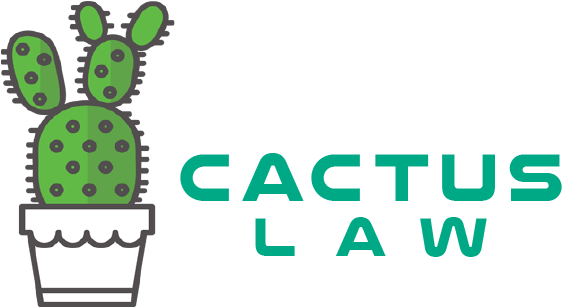 What is Cryptocurrency?
What is Cryptocurrency?
Cryptocurrency is a type of digital asset that employs blockchain technology to record transactions and control the issue and transfer of the cryptocurrency in a decentralized way, and thus, preventing fraudulent transactions.
Bitcoin, which debuted in 2009, has grown to become the most commonly used and accepted cryptocurrency. Other popular cryptocurrencies include Ethereum, Ripple, Stellar, Cardano, and Litecoin, although there are presently over 1,000 alternative cryptocurrencies that have been founded for a variety of purposes. Cryptocurrencies are avidly traded through online exchanges.
Blockchains
Blockchains are a distributed ledger system of technology, which implies that several persons or organizations maintain copies of the ledger at the same time, and no copy is the master or lead copy (hence, blockchain technology is distributed and decentralized). It is an immutable method of sending and receiving data in various forms. Notably, this results in the creation of a permanent record that cannot be modified or erased. Blockchains can be distributed publicly or privately, and they may be owned publicly or privately.
Blockchain transactions are regulated by consensus and verification processes that include the blockchain’s participants, eliminating the need for any central authority or third-party intermediary, such as a financial institution or clearinghouse. Every record in the blockchain (called a “block”) has a timestamp and a unique cryptographic code, and it is digitally linked to the immediately preceding block by a unique “hash” code, making the ledger an auditable, immutable record of all transactions that have occurred since the ledger’s inception. This enables users to determine if blockchain data is valid or whether it has been tampered with.
A blockchain may be used for a variety of purposes, but it is best recognized as the technology that underpins Bitcoin. However, its applications in the capital markets and financial services industries are growing substantially, and applications are projected to grow into many other business and commercial areas, such as payment method applications, in the coming years.
Smart Contracts
Smart contracts are blockchain applications in which terms and conditions are programmed and implemented autonomously. Smart contracts allow for transaction automation, which may dramatically reduce costs, boost efficiency, and prevent fraud. Smart contracts frequently require knowledge about triggering events from external trustworthy authorities known as oracles.
Cryptocurrency Mining
In the case of cryptocurrencies, individuals who validate the “block” transaction (i.e., a proposed transfer of the cryptocurrency from one user to another) are known as “miners,” since they “mine” the cryptocurrency by attempting to solve complicated math problems related with the block. These math problems have solutions that are difficult to uncover but simple to verify. When a transaction is proposed, the first miner to successfully identify the answer and have it validated by the network is rewarded with a specified number of freshly generated units of the cryptocurrency in question (in addition to any fees payable by the parties to the transaction).
The size of the mining award is set by an algorithm that is meant to manage the quantity of cryptocurrency distributed to miners over time in relation to the cryptocurrency’s remaining supply. Any participant in a cryptocurrency blockchain can mine that cryptocurrency, but the amount of computing power and energy required to successfully mine a cryptocurrency increases over time, as the blockchain algorithms automatically make the math problems harder and harder to solve in order to control the distribution of mining rewards as well as the time it takes to validate transactions.
Coins Vs. Tokens
“Coin” is an abbreviation for “altcoin,” which is a cryptocurrency coin other than bitcoin. Ether, Stellar, Ripple, and Reddcoin are a few examples. They are comparable to bitcoin, but they are on their own platforms and employ separate methods that are a sort of blockchain but not the same as bitcoin’s.
“Tokens” are digital assets that do not reside on their own blockchain network. They are often created using templates from another blockchain platform, such as Ethereum or Waves.
Tokens or coins often grant the possessor the permission to participate in a certain project or technology. For example, once a network has been created, a corporation may issue tokens that may be used to access a decentralized file storage network through the internet. The value of these tokens fluctuates dependent on the success of the underlying project or technology, and they are regularly traded over online exchanges.
Utility Tokens v. Security Tokens
To date, tokens are most commonly used to represent the right to a particular amount of future products or services that the issuer intends to produce (such tokens are usually known as “utility tokens”). Unlike utility tokens, “security tokens” or “investment tokens” give investors economic and voting rights similar to stock options.
How Canadian Securities Laws Apply to Cryptocurrency – Cryptocurrencies as Securities
The well-established four-step test based on the Supreme Court of Canada’s decision in Pacific Coast Coin Exchange of Canada v. Ontario (Securities Commission) is used to help determine whether a coin or a token qualifies as a security, or investment contract, under Canadian law. Under the Pacific Coin Test, a coin or token is a security if it involves:
- an investment of money
- in a common enterprise
- with the expectation of profit
- that is to come significantly from the efforts of others
When determining whether securities laws apply, the Canadian Securities Administrators (CSA) will assess the substance of the transaction with the goal of protecting investors in mind. Using a new technology and language to generate funds (for example, selling a coin or token instead of shares or stock) does not decide whether securities rules apply.
Tokens do not cleanly fit into the legal framework for establishing whether something is a security, and additional elements, such as policy concerns, may be considered.
If a cryptocurrency is classified as a security, its distribution in Canada will be subject to the entire range of securities-law regulations. These include an obligation to sell securities under a prospectus or pursuant to a prospectus exemption, such as private placements that sell only to accredited investors in accordance with the Accredited Investor Exemption or providing investors with an offering memorandum containing prescribed information that carries liability for misrepresentations. Furthermore, coins or tokens that qualify as securities and are distributed in Canada will be subject to resale restrictions under Canadian securities laws.
Dealer Registration Requirements
If an Initial Coin Offering (ICO) involves the distribution of securities, the companies participating may need to be registered as dealers in Canada or qualify for an exemption from the dealer registration requirement. This will be determined by whether the company is dealing in coins or tokens for a “business purpose.”
Cryptocurrency Exchanges
There are several online exchanges that support secondary trading in cryptocurrencies, where investors may purchase and sell a range of cryptocurrencies (including those created in an ICO) in exchange for other cryptocurrencies (such as bitcoin or ether) or fiat cash (for example, USD or CAD).
Cryptocurrency Investment Funds
There are a number of possible regulatory difficulties related with cryptocurrency investment funds, including whether such funds may be marketed to retail investors in Canada without a prospectus, valuation, registration, and custody requirements, and the use of cryptocurrency exchanges by such funds.
On September 10, 2018, the first open-ended Bitcoin fund certified by Canadian regulators, First Block Capital Bitcoin Trust, became accessible on the NEO Connect fund distribution platform. Units of the fund may be acquired exclusively by qualified investors through investment advisors and kept in registered accounts, including registered retirement savings plans and tax-free savings accounts.
CSA Regulatory Sandbox
The CSA Regulatory Sandbox (Sandbox) can assist financial technology (fintech) companies considering ICOs by summarizing important topics that companies should be prepared to discuss with CSA employees.
The Sandbox can be used to register for or get exemption from securities law requirements in a speedier and more flexible manner than traditional applications.
On August 16, 2017, an exemption order was issued to Impak Finance Inc., a fintech start-up company that planned to issue Impak Coins, a new digital currency based on the Waves blockchain platform, to fund the development of Impak.eco, an online social network dedicated entirely to the impact economy.
The business acquired prospectus and registration exemptions in British Columbia, Alberta, Saskatchewan, Manitoba, New Brunswick, Nova Scotia, and Ontario as part of the Sandbox. The exemptions were conditional on a variety of factors, including:
- Investors will get an offering memorandum as well as certain continuing information
- Implementation of different know-your-client, suitability, anti-money-laundering, and anti-terrorist-financing measures.
- A non-accredited investor’s maximum investment limit is $2,500.
- Restriction on cryptocurrency secondary trading.
The OSC Study on Cryptocurrency Assets & The Importance to Stay Knowledgeable
On June 28, 2018,the OSC issued a press release titled OSC Study: Lack of Understanding of Cryptoassets Puts Ontarians at Risk, stating that Taking Caution: Financial Consumers and the Cryptoasset Sector, a new research study released by the OSC, discovered that many Ontarians, including those who currently own cryptoassets, lack a true understanding of cryptoassets.
Such OSC studies show the increasing need for Canadian consumers to become aware of how crpytoassets function. These types of assets are only positioned to gain even more applicability to everyday life in the near future. Regulatory authorities, such as the Investment Industry Regulatory Organization of Canada and the various Provincial Consumer Protection Agencies are just a few examples of regulatory authorities other than the CSA that may be involved in any business transactions in cryptocurrencies.
If you have any questions about your business’s cryptocurrency needs, contact Cactus Law today to speak with a lawyer specializing in corporate law.
Disclaimer:
The information presented above is solely for general educational and informational purposes. It is not intended to be, and should not be taken as, legal advice. The information given above may not be applicable in all cases and may not even reflect the most recent authority after the date of its publication. Nothing in this article should be relied on or acted upon without the benefit of legal advice based on the specific facts and circumstances described, and nothing in this article should be interpreted otherwise.
About the Author:
Kanwar Gujral is entering his third year at Osgoode Hall Law School in Toronto, Ontario. He has a dedicated interest in real estate, business, and corporate law.

